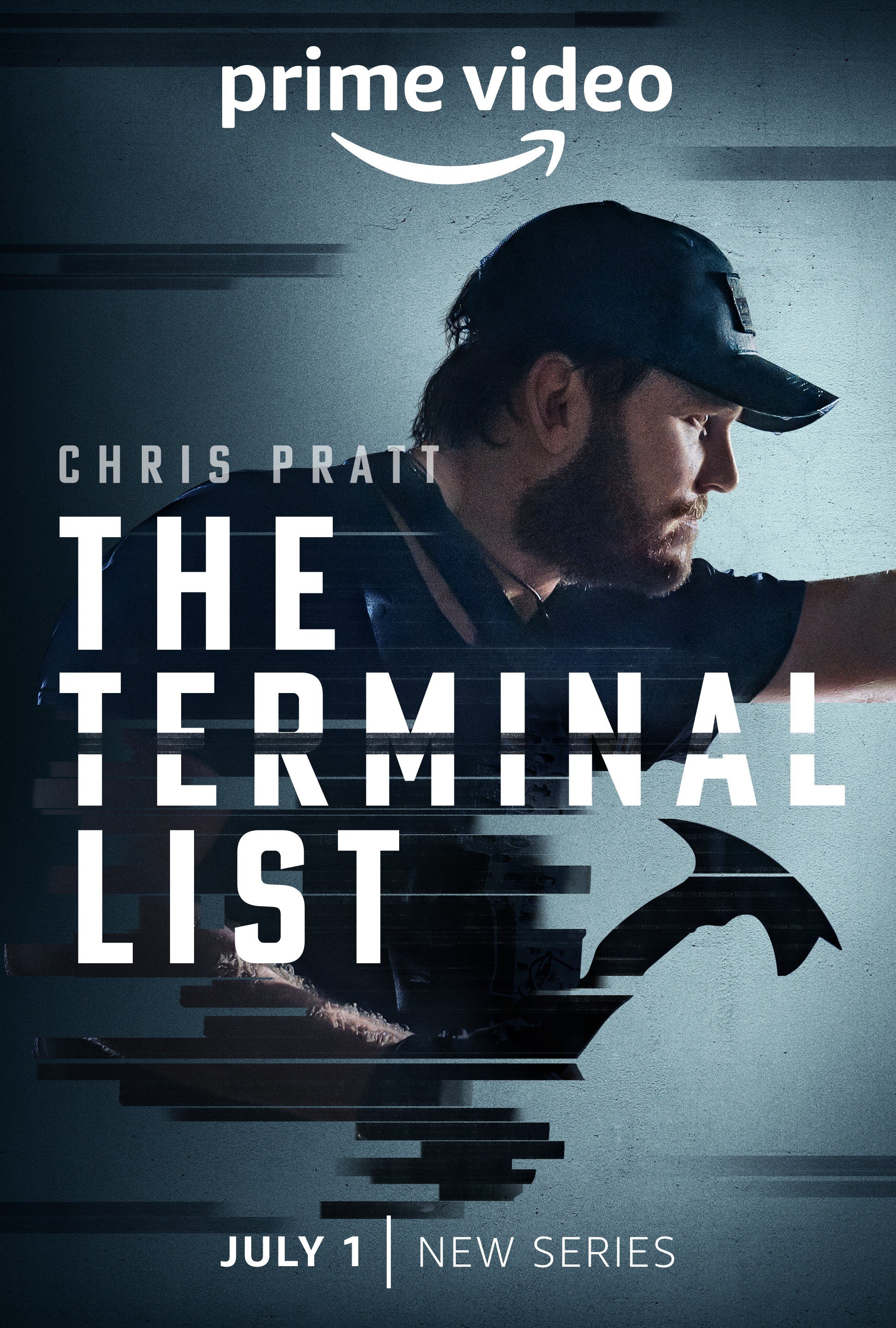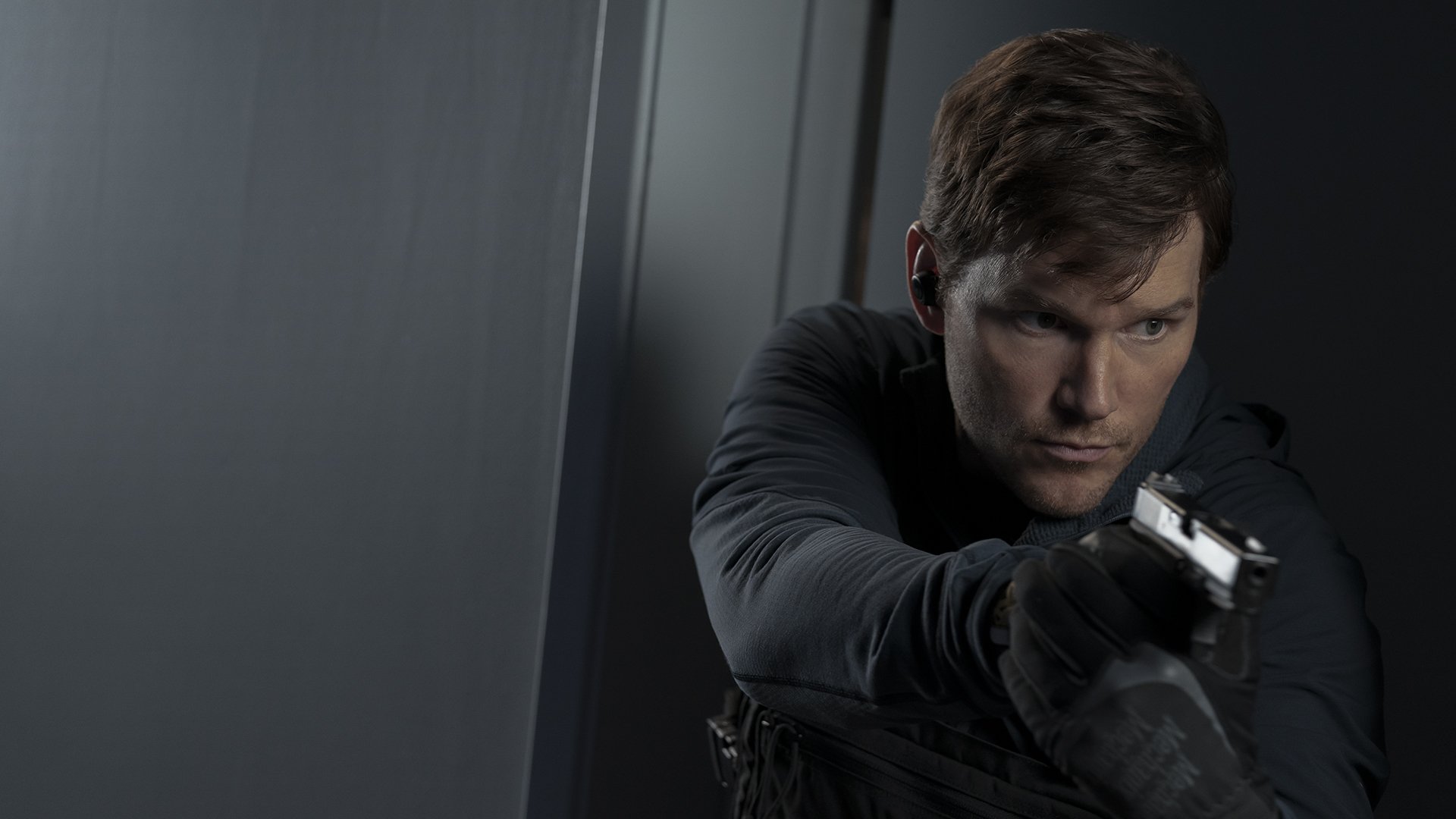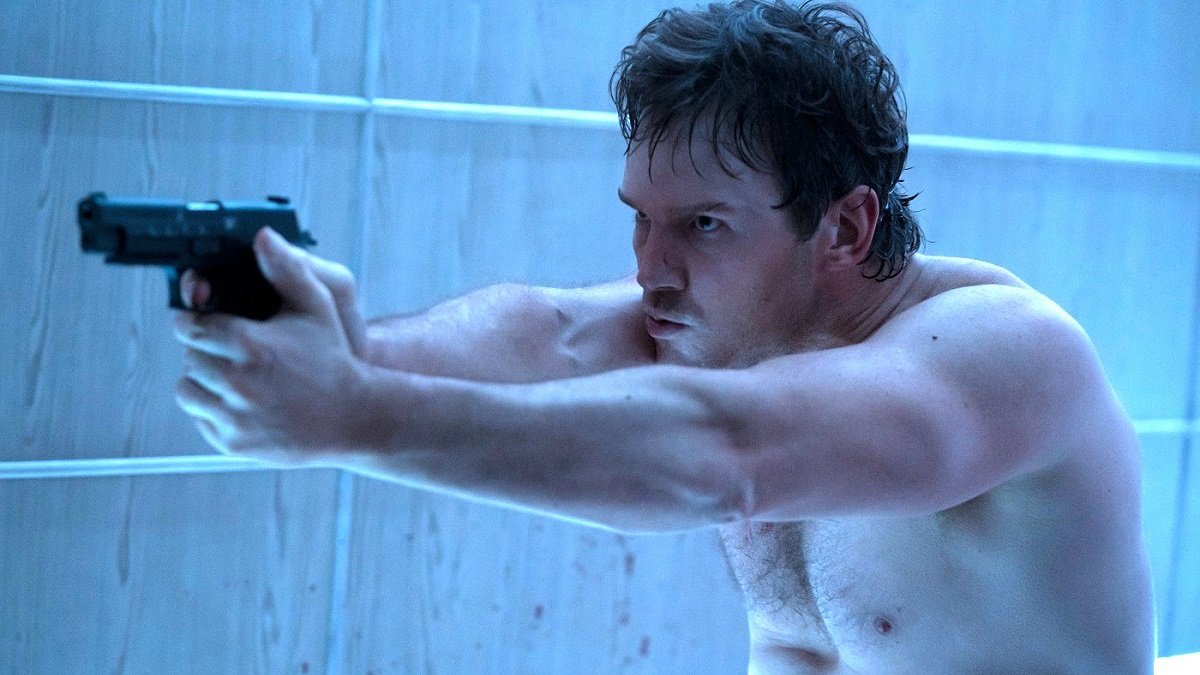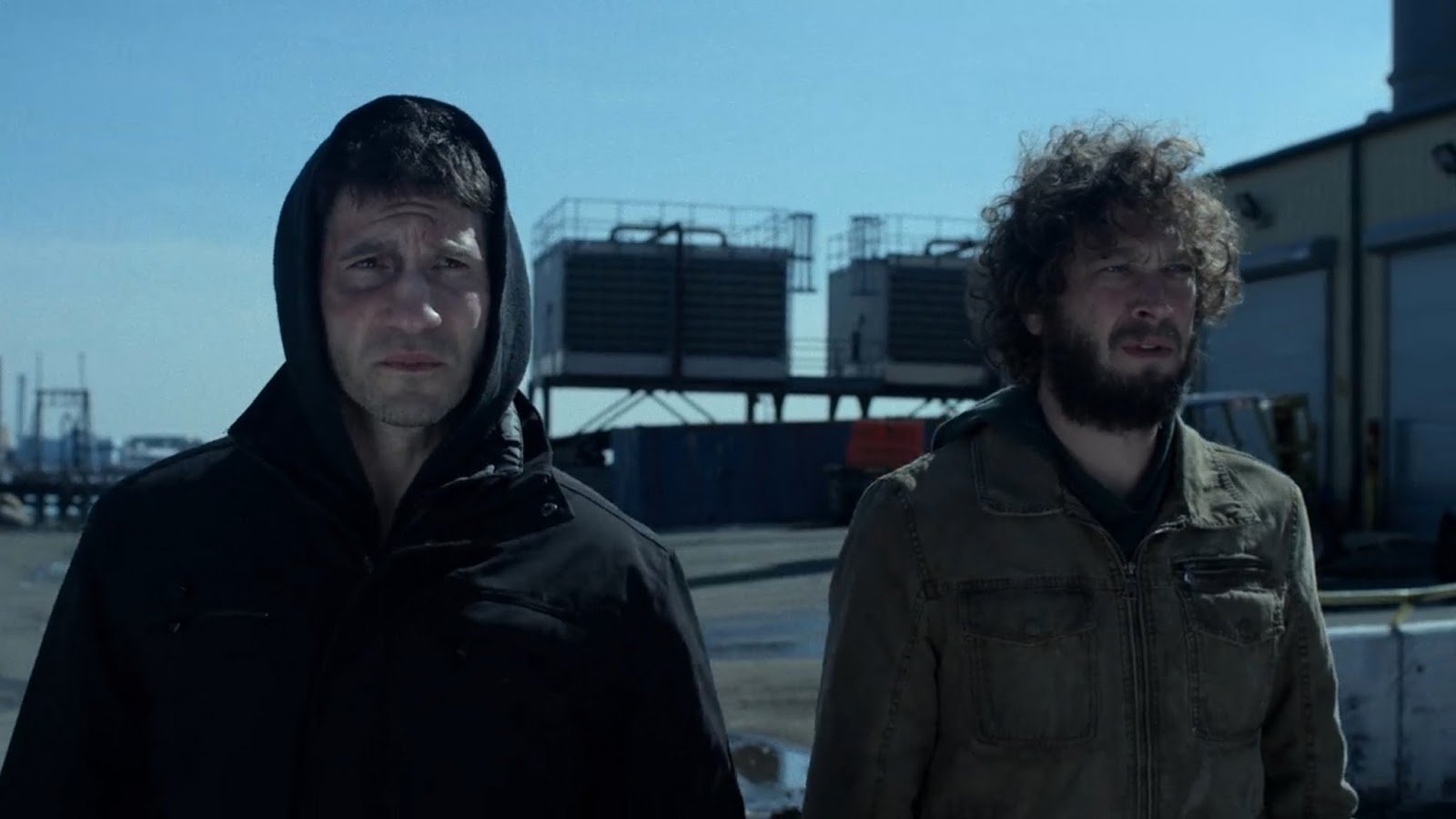Chris Pratt is prepared for anything, given his EDC of Bible quotes and magic gun safe containing everything he needs
So, The Terminal List is bad. It’s very bad. I know, it was a long shot that it was going to be good anyway, as more and more streaming services act as their own production companies, the brands get more and more watered down. “Netflix Original” doesn’t quite swing as hard as it used to. Sure, there’s Stranger Things, Dead to Me, and Mindhunter, there’s also The Do-Over, Luke Cage Season 2, and Cowboy Bebop, among others. I’m not saying it doesn’t count for anything, but it’s not like it once was. Same thing with Amazon Prime. In fact, it seems like when Amazon has something really good on their hands, they don’t seem to know it—cancelling The Tick after two fantastic seasons and Truth Seekers after only one—but there are some good shows that endure like the only sometimes problematic Jack Ryan and The Boys.
Chris Pratt flexes his action chops in this by the numbers revenge less-than-thriller. Hair is on point, though.
And this brings me back to The Terminal List. Chris Pratt’s last tango with a Prime Original was the dismal and forgettable Tomorrow War, where he played someone dead in the future sent to the future to fight future aliens while no one tries to figure out where they came from until it’s apparent that they’ve lost. So it’s not like I got my hopes up when I first saw the trailer for The Terminal List. Needless to say, quite a bit of the shine has been taken off Chris Pratt for me in recent years and as I shrugged and hit play, I muttered to myself, in a not-exactly-prescient act of consolation, “at least it’ll be violent”. And it delivered at first—despite watching it in the dead of night in the rare hour that there are no 4th of July holdouts still setting off fireworks, the dark and murky opening action sequence still managed to be hard to see and poorly mixed, with garbled audio. The rest of the episode was largely predictable and not very compelling, leading to a final crescendo that begs the question: “Just what the hell was the plan here?” Just a quick bit of spoiling for the first episode—in an apparent attempt to stage Chris Pratt’s suicide, he’s attacked while having an MRI done. Now, I don’t know if you’ve ever had an MRI, but I have, so I know a few things about MRIs. One, they’re big magnets and you’re not allowed to take metal into the room with it. Two, it’s notoriously hard to conceal anything when wearing little more than a hospital gown. So attempting to make it look like a man snuck his pistol into an MRI, had the MRI done, which takes about 45 minutes, and shot the MRI technician, and then shot himself in the head seems like a cover story so flimsy even the most keystoney of Keystone Cops could see their way through. And then he comes home to his dead family, so he can be excused for any level of violence and cruelty he will dish out in return. Not that I don’t understand the sentiment, but much like Disney killing parents, the unbridled quest for revenge due to murdered family is a bit done.
Pratt desperately seeking revenge—and a shirt
After three episodes, which is just about all I could sit through, it seem the show has settled into a pattern. Chris Pratt mopes a bit, someone tries to kill him, he finds a name, and then uses his seemingly never-ending resources and skills to kill someone just before the credits roll. Just in time; if it weren’t for the occasional bursts of violence, the show would be terminally boring. However, it really does make me wonder what’s going on in the world of The Terminal List. Finding the first name on his list was easy enough—the person’s actions were so obvious that anyone could see through them. From there, he connects one dot to the next, crossing names off his Arya List as he goes. One thing that gets me, however, is that his list, written on the back of a drawing his daughter made for him, really only gets one name added to the list before he crosses it off. Does he really need a list? It’s not like he’s investigating, gathering names, and then going to cross them off one by one. I would think he could remember one name at a time. But, I digress; in between these “missions”, he also survives multiple assassination attempts. The one in the third episode is the most interesting to me. While meeting with an ally to his cause, he catches the slightest glimpse of a bearded man in a hat and sunglasses. This, predictably, ends in a violent shootout in broad daylight on the street, as these lunch meetings tend to. However, it seems like this massive firefight goes unnoticed by everyone, other than Pratt, his ally, the dead guy, and the shadowy employers of the dead guy. Now, I’m not asking for the full CSI treatment, but the idea that someone can get into shootout in broad daylight on the street outside of a seemingly popular restaurant and the show doesn’t even pay lip service to things like an investigation or CCTV footage or red light cameras or anything that like makes the writing feel amateurish and inattentive to detail. And for a show that goes into painstaking detail of every type of gun used, it really shows where the priorities are—it’s not about the storytelling, because stuff like that rips me right out of my suspension of disbelief way more than someone not knowing the nitty gritty details of a gun’s specs, like I’m watching an episode of Call of Duty’s loadout gunsmith. Leave aside the fact that Call of Duty’s gun customization has taken a sharp right turn away from reality for a moment, please. Don’t get me wrong, I love a bit of gun porn as much as the next guy—the scene between Keanu Reeves and Peter Serafinowicz in John Wick Chapter 2 was great fun for me—but you’ve got have your priorities.
When it comes right down to it, if Prime suggests you should watch The Terminal List, don’t. Watch one of these shows instead of this Punisher pretender:
Jack Ryan (Amazon Prime Video)
Jim Halpert isn’t messing around anymore
Yes, it’s a missed opportunity that Jack Ryan never even once put Greer’s gun in Jell-O
If you’ve only ever seen John Krasinski in The Office, seeing him as Tom Clancy’s former Marine turned CIA analyst might come as a bit of a shock to you. And if that is the case, definitely go watch A Quiet Place, his excellent sci-fi/horror film which he stars in and directs. Anyway, back to Jack Ryan. Two seasons are currently available with a third on the way and Krasinski steps into the role quite well, speaking as someone who grew up on Harrison Ford’s portrayal of Jack Ryan. There have been reboot attempts in the past—Ben Affleck’s Sum of All Fears and Chris Pine’s Jack Ryan: Shadow Recruit both fell woefully short of the highs of films such as Clear and Present Danger and Patriot Games, but this iteration does the series justice. The globetrotting spy series offers smart writing, with nuanced characters, only resorting to blatant stereotyping on relatively rare occasions, but if you’re on the lookout for expansive globetrotting action intertwined with international intrigue, Jack Ryan is well worth a look. The first season finds Jack working on tracking down a new breed of super terrorist, largely in a Middle Eastern and European theater, with big set pieces in Yemen and France. The second season takes Jack to South America, tracking a mysterious shipment from Russia to an unstable Venezuela. While another Middle Eastern terrorist might not exactly break any expectations, it’s handled fairly well and the second season feels very keyed in to current worldwide concerns. Personally, I felt the second season was an improvement on the first, which I thoroughly enjoyed. I’m due for a rewatch of this myself, so I might be following my own advice shortly.
The Punisher (Disney+)
Two dead men ponder existence
Special Ops. Betrayal. A murdered family. A man looking for revenge. A conspiracy. A web of lies. These are the ideas The Terminal List lifted from The Punisher. Watching the pilot episode, I couldn’t shake the feeling that I’d seen this all before and I’d seen it done much better when it starred Jon Bernthal and Ebon Moss-Bachrach. The Terminal List is what happens when you have a pale facsimile of The Punisher mixed with Arya Stark’s penchant for making lists. So why not watch the better version?
Yeah, he’s scary, but he’s far from the indiscriminate killing machine we’re used to seeing
When The Punisher first released on Netflix, it received a fair bit of criticism. Some people felt it was too slow, some people wished for a more indiscriminately violent Punisher. But when you stick with the first season, you see not only a portrait of a man’s guilt and grief driving his sometimes merciless actions, but also a deep, personal look at PTSD in veterans. The Punisher isn’t just a showcase for Jon Bernthal’s excellent acting, but it also acts a reminder. We ask a great deal of our soldiers—whether you agree with the decisions that put them in war or not, we often take very young men and women and ask them to do the worst things that humans do to each other and put them in incredibly stressful life and death situations. Humanity has been waging war since before the loincloth and our psyches are still not built for doling out that kind of destruction to one another. War is a horrible thing. It is violent, it is gruesome, and it leaves a stain on all of humanity. The Punisher reminds us that we’re not doing enough to support veterans when they come back to a home that feels foreign at times, with dangers, perceived or real, they’ve been trained to be hypersensitive to. Was The Punisher slow? No, I don’t believe it was—it was deliberate. It takes time to paint a picture and the show had to take its time to color the canvas. A show or film is only really slow if the payoff isn’t worth it. And in this case, it very much is. As much as I am burnt out on the MCU, this show doesn’t feel the same as the quippy, bright sky beam slug fests you’re used to seeing on the big screen. It’s quiet, it’s dark, it’s an intimate portrait of two men living as ghosts, each of them half alive, trying to make themselves whole again. If you overlooked this show the first time around or listened to the negative buzz, it’s time to load this one up and give it a watch.
Moon Knight (Disney+)
Steven Grant wonders if this Glock is the worst cupcake he’s ever seen
The man in the mirror routine can often look cheesy, but Oscar Isaac pulls it off with aplomb
Moon Knight, on the other hand, does have its more MCU-y moments, but it also feels different enough that I was able to enjoy every moment of Oscar Isaac’s performance as Steven Grant and Marc Spector. Now, dear reader, you deserve a warning here—I am a huge fan of Oscar Isaac. One of the biggest. I think he’s an incredible actor who elevates anything that he’s in. And I really mean that. I’ve seen Triple Frontier twice if you don’t believe me. Yeah, twice. I know. Despite the conceit of Egyptian gods and magical powers and another super suit, Moon Knight delivers a lot of down to earth action and another look at trauma, different this time from The Punisher. Yes, Marc Spector has a military background, but the pain in him comes from the deepest place; a place so embedded in your soul that it makes you wonder if you can ever come back from it. It makes you question how we cope with our lives and the bad things that we have to deal with on a daily basis. Most of us don’t go to war. Most of us are not operators who can kill their way out of any problems that may arise. Most of us are just regular people who hurt, who take the pain that life hands out with reckless abandon and internalize it, living in societies that stigmatize mental healthcare, placing people in a position to perpetuate the trauma imparted on them. Marc and Steven didn’t ask for what happened to them—in some ways, their tragedy is so normal and accessible to those of us who don’t become SEALs or Delta Force that it may even be written off as mundane, which is in itself tragic. But while The Punisher makes us look at how we treat the people we ask to do our dirty work, Moon Knight asks us to look at how we treat each other and ourselves. Moon Knight wants us to look at our own pain, our own struggles, our own traumas and begs us to find a way to be kind to ourselves.
Steven Grant is what happens when Paddington Bear becomes a real boy
Of course, Moon Knight doesn’t just offer this—it also has moments of genuine laugh out loud comedy, suitably disorienting direction that puts you in the shoes of the character (or rather, the character’s then-dominant personality), and some very fun and intense action sequences. The use of time cuts puts you on your heels and leads to some very interesting storytelling.
Bodyguard (Netflix)
Robb Stark has traded in the leather armor for a half Windsor. It works for him, not going to lie.
Bodyguarding requires a lot more standing next to cars than being King of the North did
Bodyguard may not be groundbreaking and it’s not as elevated the way some of the other shows on this list are, but it’s still a great, tension-filled, twisting and turning watch. Robb Stark (aka Richard Madden) stars as PTSD-afflicted officer of the Royalty and Specialist Branch of the London Metropolitan David Budd who is tasked with protecting a politician whose beliefs run counter to his. Not only that, she was behind some of the decision making that put him into war, that caused him to lose friends, and struggle with his mental health after returning home. From minute one, the show is filled with edge of your seat moments that leave you and the characters pointing fingers in just about every direction.
Madden does a great job portraying the volatile Budd, a man trying to keep it together and reconnect with a family from which he’s become alienated. If you want 24-like action and political intrigue without the “blame the closest brown person and torture them as much as possible” approach of Jack Bauer, this miniseries might be for you. While it doesn’t feel as significant emotionally as shows like The Punisher and Moon Knight, Bodyguard is well written, well acted, well shot, and well worth your time.











